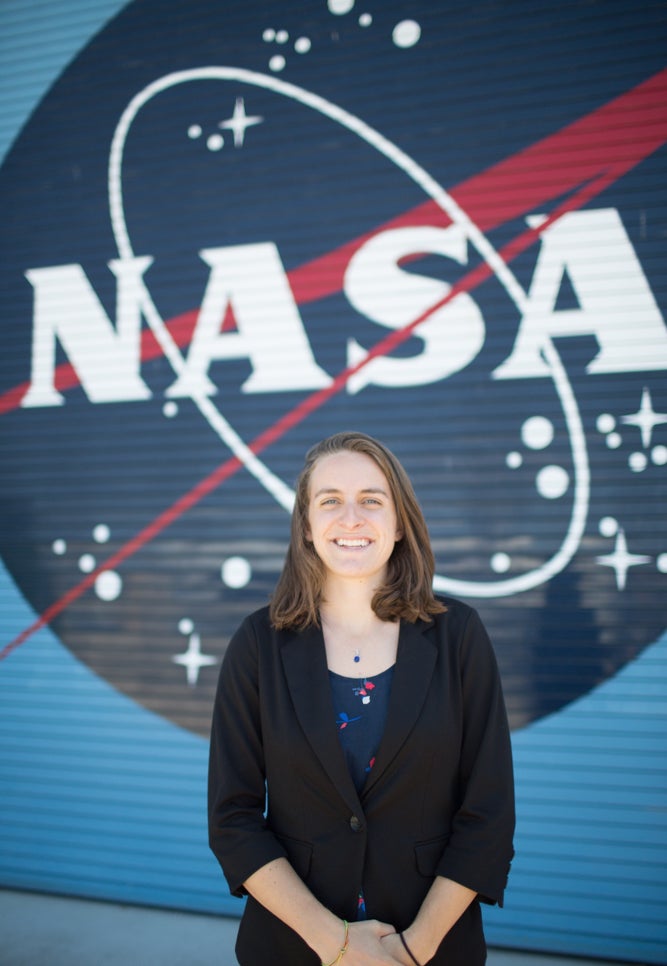Note: Yale School of the Environment (YSE) was formerly known as the Yale School of Forestry & Environmental Studies (F&ES). News articles and events posted prior to July 1, 2020 refer to the School's name at that time.
Rebecca Lehman ’18 M.E.M., a second-year master’s student at the Yale School of Forestry & Environmental Studies, recently received a grand prize in the American Geophysical Union’s (AGU) Data Visualization and Storytelling contest.

The award recognized a research project in which Lehman investigated how to make remote sensing technologies accessible to vulnerable communities. She conducted the work during her summer internship with NASA DEVELOP, a training and development program sponsored by NASA’s Earth Science Applied Sciences Program.
For the project, Lehman and her partners used Google Earth Engine to bring big data to remote places. Specifically, working with the U.S. Department of Planning and Natural Resources Coastal Zone Management Division in the U.S. Virgin Islands, they used satellite imagery to identify at-risk coastal habitats.
Their findings added to research on the link between land use and coastal ecosystem health, and can be used to inform future land use development and planning — including research into mitigating the impacts of development on coral reefs.
This AGU contest is focused on innovation and creativity in presenting data in new ways, not on the scientific problem or specific solution to the problem.
Lehman was one of six recipients of the prize, which included $5,000 in grant monies to travel to AGU’s fall meeting and another Earth and space science meeting in 2017 or 2018, and an opportunity to present on the NASA Hyperwall during the AGU fall meeting.
For the project, Lehman and her partners used Google Earth Engine to bring big data to remote places. Specifically, working with the U.S. Department of Planning and Natural Resources Coastal Zone Management Division in the U.S. Virgin Islands, they used satellite imagery to identify at-risk coastal habitats.
Their findings added to research on the link between land use and coastal ecosystem health, and can be used to inform future land use development and planning — including research into mitigating the impacts of development on coral reefs.
This AGU contest is focused on innovation and creativity in presenting data in new ways, not on the scientific problem or specific solution to the problem.
Lehman was one of six recipients of the prize, which included $5,000 in grant monies to travel to AGU’s fall meeting and another Earth and space science meeting in 2017 or 2018, and an opportunity to present on the NASA Hyperwall during the AGU fall meeting.
Published
December 15, 2017